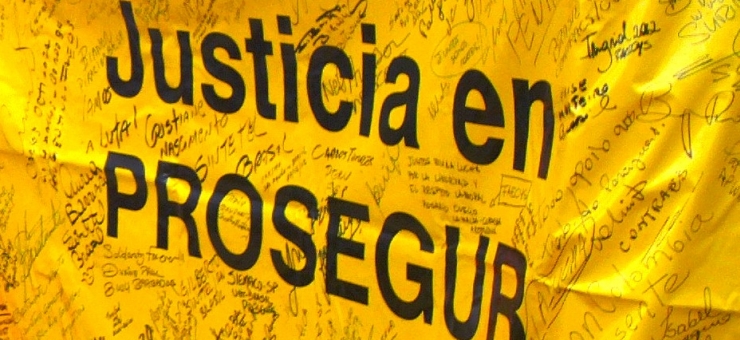Prosegur fined by Brazilian Court – failure to release employee from work

A regional judicial tribunal in Brazil fined Prosegur, a Spanish-based private security firm, R$15,000 for requiring an employee to get a “passcode” from her supervisor to be able to get out of work at the end of her shift. According to the worker, she was kept at the end of her shift on several occasions when her supervisor was unavailable to release her. Not surprisingly (given the company’s response to a broad range of human rights and labour abuses), Prosegur denied that this happened. Fortunately for the worker, this practice was confirmed by witness statements to the labour tribunal in Rio de Janeiro and the tribunal found in favour of the worker and ordered the company to pay R$15,000 in compensation.
Prosegur has a series of pending international legal actions against the company based on allegations of human rights and labour abuses. An ILO complaint is pending in Geneva and Chile based on the company’s en masse dismissal of over 300 security guards in Paraguay for exercising their legal right to strike. An OECD complaint is pending in Spain, Colombia and Brazil over a series of complaints ranging from harassment and retaliation for exercising freedom of association and collective bargaining rights.
Workers throughout South America have sought unionization to address long-standing worker abuses including excessive hours of work, health and safety violations, low pay, lack of permanent job status and indecent working conditions.
UNI and its affiliates formed the Prosegur Alliance to address these issues and they advocated for a Prosegur EWC which was finally operational last year, following extensive delays from the company. This week, a member of the Prosegur EWC from the 2.2 million member German union Ver.di sent an email to Javier Tabernero, Prosegur's Managing Director for Europe, asking how Prosegur can justify its failure to comply with generally accepted international human rights standards and why Prosegur refuses to enter into a Global Agreement with UNI. The EWC member asked for a company response by 30 April 2014.

